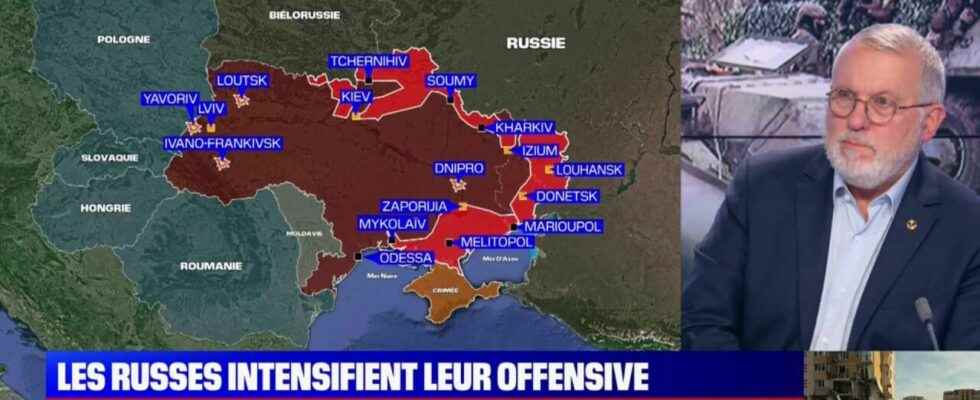“I am surprised that the Russian Constitution allows the creation of private armies. Is that the case?” On the set of LCI, this February 5, the Russian diplomat Alexander Makogonov seems disconcerted by the guts of his interlocutor. But Michel Yakovleff is not the type to let himself be impressed by elements of language. He was a four-star general in the French army, number 4 in the NATO chain of command. It was he who asked to directly question the spokesperson for the Russian Embassy in France: “I had watched a previous debate with Makogonov. I found that we did not take it up enough, that we focused on anecdotal subjects. So I offered to debate with him”, says the senior officer.
Straight talk and expertise. With this interpellation on the Wagner company, General Yakovleff illustrated what this handful of soldiers who have become, since February 24, 2022 and the invasion of Ukraine, familiar figures on our television screens can bring. “We are the equivalent of doctors at the time of the Covid, we try to explain the complexity of the war with clarity”, smiles General Jérôme Pellistrandi, in charge of morning interventions on BFM TV. Rather than relying solely on specialist journalists, the news channels preferred to recruit war practitioners directly. “We did not necessarily go to war, but we spent our life studying it. We have a degree of reflection that the others do not have”, assures Michel Yakovleff, amused to have been first asked as ‘afternoon general’, in a context where the antennas asked for “General H24”.
Between 300 and 500 euros per day
Because it works. According to the audience peaks of BFM TV and LCI or the 111,000 followers on Twitter of Colonel Michel Goya, in charge of the afternoon and evening interventions on BFM TV, the public adheres. “I can no longer go out without being recognized, they call me by my name and my rank! remarks General Dominique Trinquand, consultant three times a week on LCI. At 95%, it’s positive, even if I was once gave the middle finger while shouting ‘Vive Poutine!’.” Michel Goya, present up to thirty-five days in a row on the screen, now presents certain maps of Ukraine himself, standing facing the screen, like a professor. “The advantage of having studied military history is that I know that almost everything that happens has a precedent”, slips this author of a thesis on the tactical evolution of the French army.
According to several sources, their passages are paid between 300 and 500 euros per day, subject to exclusivity on the channel that employs them. At this price, it is forbidden to be caught off guard. Michel Goya permanently follows 70 Twitter accounts, while Dominique Trinquand has a Russian teacher friend translate the declarations of Kremlin officials. He also follows daily the interactive maps of the Institute for the Study of War, an American NGO. Jérôme Pellistrandi, likely to be called upon from 5 a.m., writes “one sheet per day” on the progress of the war.
None of them receives tips from the political power. “I’m not calling anyone!” warns Michel Goya, who is informed “only with open sources”. The only exception concerns Michel Yakovleff, who “once” asked an active manager for clarification, in order “not to talk bullshit”. The military hierarchy never contacted them, so much so that Dominique Trinquand ended up asking for a meeting. In December, a meeting took place between representatives of the center of doctrine and teaching of the command of the army and five of these soldiers of the PAF, gathered for the occasion at the Military school, in Paris. Around the table, Dominique Trinquand, Michel Goya, Jérôme Pellistrandi, General Christophe Gomart, General Nicolas Richoux and “black belts from Ukraine” – the formula is from Michel Goya. The opportunity to have their analyzes validated… but also to question the communication of the Ministry of the Armed Forces. Like journalists, plus stars.
